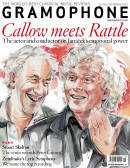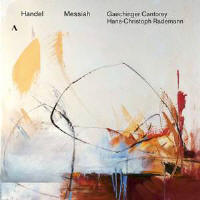Texte paru dans: / Appeared in: |
|
|
Outil de traduction (Très approximatif) |
|
|
Reviewer:
David
Vickers Gaechinger Cantorey and Hans-Christoph Rademann endeavour to present the version of Messiah that Handel directed at its premiere in Dublin in 1742. They tackle it with a touch less innovation and ambition than the Dunedin Consort’s revelatory replication of the scale and functions of the collective ensemble employed for the historic occasion. The oratorio’s premiere had a choir of not more than three or four voices per part which included all seven soloists (one soprano, one female alto, two countertenors, one tenor and two basses), all of whom also sang in the choruses, and the modest orchestra probably did not include oboes or bassoons. However, Rademann’s traditional quartet of SATB soloists are kept separate from his 22-strong choir, and he fields a larger orchestra that includes oboes and bassoon. Moreover, Rademann uses a countertenor for all the important alto airs, whereas in 1742 Handel assigned them all to Susannah Cibber. The exact content Handel performed in Dublin certainly featured numerous quirks that he ironed out in later London revivals. Rademann does not reinstate the extra echoing bars in the ritornellos of ‘Ev’ry valley’ that were obviously played in 1742, and the lumbering bass da capo setting of ‘But who may abide’ is dropped in favour of an undated brief recitative version (perhaps a Dublin substitution, or perhaps not). Other unique 1742 hallmarks are present and correct: the extended Pifa is played with charming softness, and the verse anthem-style replacement setting of ‘How beautiful are the feet’ for two countertenors and choir (culminating in the chorus ‘Break forth into joy’) is performed capably – although its extra lines of text are missing from Accentus’s booklet. Benedikt Kristjánsson’s gracefully floated messa di voce (‘Comfort ye’) and exquisite appoggiaturas (‘Behold, and see’) make one regret Handel’s 1742 substitution of ‘Thou shalt break them’ for a simple recitative. Tobias Berndt sings the bass version of ‘Thou art gone up on high’ with compassionate serenity, and ‘The trumpet shall sound’ has dignified courtliness. Benno Schachtner sings ‘He shall feed his flock’ tenderly, ‘He was despised’ has gentle yet insistent dolorousness, but Rademann’s clichéd use of solo fiddle in ‘If God be for us’ is modern-day whimsy. Dorothee Mields’s radiant pealing in the early 12/8 setting of ‘Rejoice greatly’ has relaxed intimacy and sparkling intelligence, and she throws in a delightful brief cadenza. Anachronistic organ continuo in slow airs bothers me less than usual when ‘I know that my redeemer liveth’ is sung as classily as this. Rademann’s high-calibre choir delivers nuanced busyness in ‘And he shall purify’, amiable gentility in ‘For unto us a child is born’, solemn beauty in ‘Behold the Lamb of God’ and sure-footed agility in ‘All we like sheep’ (although its conclusion is clumpy). ‘He trusted in God’ has visceral tension and a ripe bassoon. ‘Hallelujah’ tiptoes prancingly (too much so) until it reaches full-throttle exclamations. Unaccompanied passages in ‘Since by man came death’ are tuned and communicated flawlessly, and even bellicose passages in ‘Worthy is the Lamb’ are interwoven lucidly. This skilful performance yields manifold musical insights. |
|




